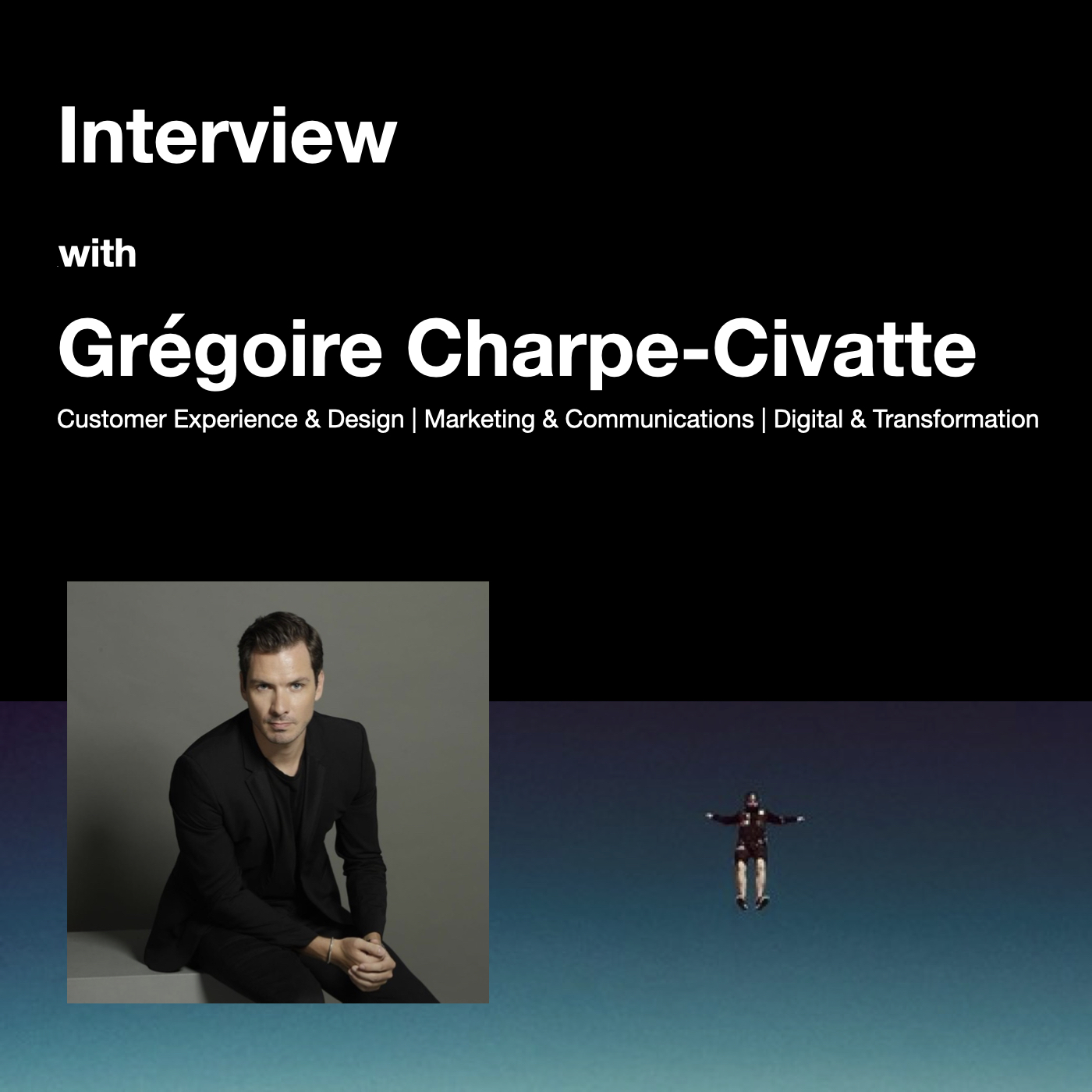14. Leadership is taking the time, exercising the decision-making muscle, learning as you lead


Listen to this episode about genuine leadership, slowing down to make decisions, having a multi-disciplinary approach and learning as you lead. (23:11)
First a quick introduction: Grégoire Charpe-Civatte is someone I met over 10 years ago, in Paris, on a project with a global industrial company. His path over the last 10 years includes different industries, contexts, countries, you know, from telecommunications, governments, start ups, and luxury retail and hospitality. His expertise is in customer experience and design, marketing and communications and digital transformation.
New gen organizations in control of where they are heading
As a gig mindsetter, it’s about getting back some level of control. It’s like choosing your job again and again, you keep making that decision to stay with that company and to keep focused on that job.
it’s a way of making sure that there’s synergy between values of the company, your own values, and the topics you want to be focused on.
It’s more than killing the norms and changing ways of working.
This is often done in a very caricature way, and is not productive.
How to recruit or identify leaders?
Too often, they bring expertise, legacy knowledge, understanding of the market but not necessarily leadership abilities.
A good leader is someone who doesn’t try to be, as good or better than their team in terms of the expertise.
Being an orchestrator, pointing to the direction chosen based on the intell and the expertise of your team.
Having the back of your team in terms of being accountable.
You need to make the time for your own approach to management to evolve.
Take the time to read about it, to have a point of view on leadership or management, and also on your area of focus. If you’re a chief marketing officer, you need to take the time to think about what is marketing today, how has it evolved.
You’re not just trying to do the same job as your predecessor.
Taking the time
“In many places there is an extreme level of ambition from a strategy perspective and an extreme eagerness to cut corners, shorten stuff, fast track it, and inevitably this leads to lower value being delivered.”
This will help you become a better organization, more meaningful for your talent, and more in sync with where the world is headed.
Finding talent is less about the track record on the paper and more about the attitudes.
It’s a lot easier to look at a CV and ask questions about past experience but that doesn’t necessarily result in the best approach to dealing with the future or the present.
The risk of using management consultants is atrophy of the decision-making muscle
Management consultancies can clearly either play a positive role or a negative role that is detrimental to organizations.
Decision-making is often times delegated to these external players, because it’s comfortable, more reassuring.
They are no longer sense-making and have created a gap between themselves, their organization, their own environment and their future
Most have the resources internally to make decisions, and have no need to outsource this.
Future thinking based on multi-lingual and multi-disciplines
Today there is a huge opportunity is to look at things with multilingual and multi-disciplinary approaches.
An example: A engineering company, 130 years old and looking at how to build disruptive, innovation capabilities hired psychologists, architects and designers. They’ve benefited from that multi-disciplinary approach.
First published Oct 29, 2021.
You can reach Grégoire on LinkedIn
Nothing matches your request, please try again with a different search term.